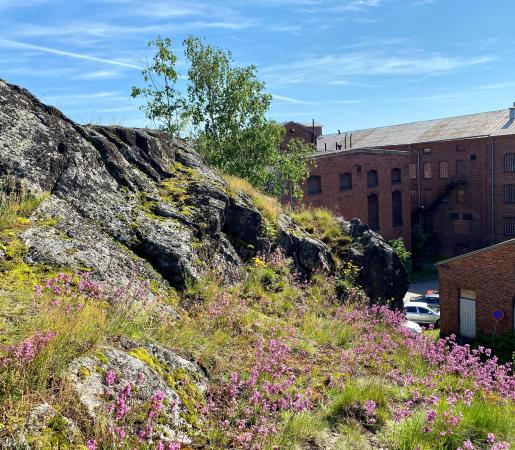
Turku
Urban Biodiversity Parks - Urban Biodiversity Parks as co-creative platforms for enhancing biodiversity, learning and community involvement in urban ecological regeneration
About the project
This project promotes urban biodiversity parks as a tool for urban ecological restoration and regeneration. It reflects Turku’s ambition to become one of the world’s leading ‘nature and climate cities’.
Piloting one main urban park and four smaller schemes, the aim is to create urban biodiversity spaces that can be used not only for recreation but also for community and learning. The park and the four selected pilot areas provide a platform for experimenting ways to preserve and actively enhance biodiversity in urban environments.
Diverse groups such as local inhabitants, NGOs, education institutions and private actors are involved in planning and implementation. These activities help integrate biodiversity protection into the maintenance and construction of urban infrastructure. In this way, Urban Biodiversity Parks increase stakeholders’ awareness of biodiversity conservation – and their capacity for actively supporting it. Activities include providing capacity building for private actors, and developing a model for including biodiversity parks in the voluntary ecological compensation scheme under Finland’s Nature Conservation Act. The project also involves citizens in participatory nature management, and cooperates with educational institutions to develop and use biodiversity parks as real-life learning environments. Additional activities include developing smaller scale suburban biodiversity pilots together with local communities, and trialling the biodiversity friendly greenspace design of a housing property.
Challenges
The diversity of life is vital for humankind, providing us with the water we drink, the air we breathe, and the food we eat. Biodiversity loss is a global challenge, but actions need to be taken locally to support local species and biotopes. Innovative solutions are needed to protect and restore biodiversity in urban areas where habitats are lost due to rapid urbanisation, and land-use changes are leading to the fragmentation and loss of green areas.
-
There is an urgent need to find new ways for active enhancement and regeneration of biodiversity in lost or degraded urban habitats – in addition to traditional nature conservation measures.
-
Dialogue and cooperation are lacking between urban authorities, experts, researchers and private actors. This hinders joint work to integrate biodiversity protection in the construction and maintenance of urban infrastructure.
-
Awareness should be increased in all levels of society to gain public and political support for biodiversity and its protection.
-
Cities need more experience in involving local communities in planning and implementing urban ecological restoration measures to improve biodiversity.
Proposed solutions
The project’s key aim is to pilot a novel concept of urban biodiversity parks as a tool for urban regeneration and resilience. Biodiversity parks serve as platforms for experimenting innovative approaches to conserving and actively enhancing biodiversity in urban environments. The first urban biodiversity park will be piloted both as a recreational area – and as a versatile learning environment for various target groups such as schools, green infrastructure companies, residents and visitors.
-
Establishment of a full-scale biodiversity park of about 20 ha in the Turku city district of Skanssi. The park will enhance biodiversity in various habitats and protect local and endangered species.
-
Implementing small-scale biodiversity pilots in selected suburban neighbourhoods. This enables participants to co-learn how urban restoration solutions can be integrated in suburban planning, development and regeneration.
-
Engaging the local community in planning and implementing biodiversity pilots and recreational elements, such as green spaces for residents and visitors to enjoy.
-
Exploring effective means to engage private actors in urban ecological restoration, and increase their knowledge and capacities in biodiversity conservation. Topics range from ecological compensation to residential property design.
-
Developing Skanssi Biodiversity Park as a participatory learning platform and promoting its use as a real-life learning environment for various educational institutions.
Milestones
Researchers and other interested people meet up to collect baseline data on local species
Suburban biodiversity pilots created by cooperating closely with local communities
Four diverse biodiversity pilots developed in selected suburban neighbourhoods
Turku’s first biodiversity park is established in the area of Skanssi
Training sessions focus on solutions to increase urban biodiversity